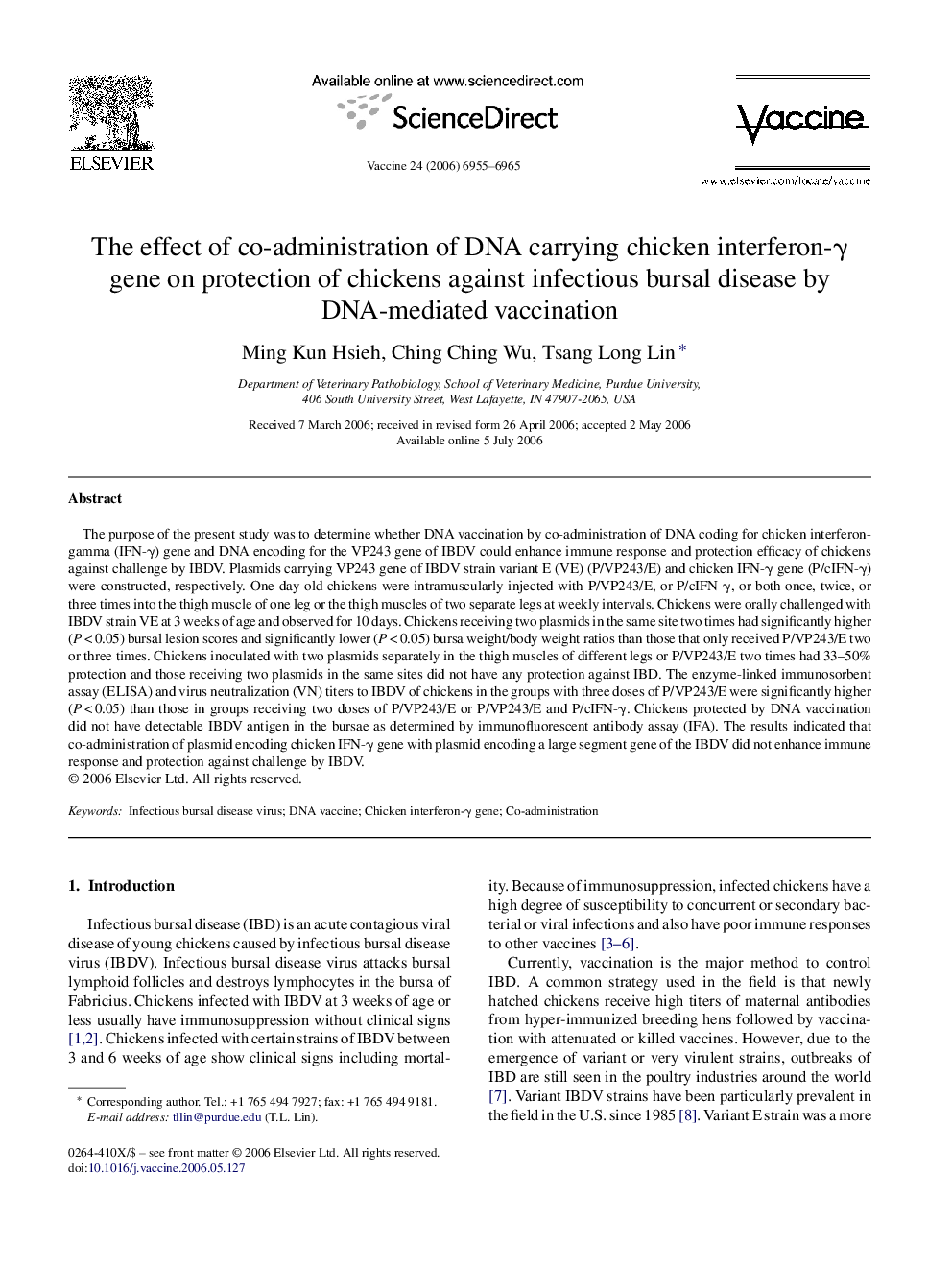| Article ID | Journal | Published Year | Pages | File Type |
|---|---|---|---|---|
| 2409902 | Vaccine | 2006 | 11 Pages |
The purpose of the present study was to determine whether DNA vaccination by co-administration of DNA coding for chicken interferon-gamma (IFN-γ) gene and DNA encoding for the VP243 gene of IBDV could enhance immune response and protection efficacy of chickens against challenge by IBDV. Plasmids carrying VP243 gene of IBDV strain variant E (VE) (P/VP243/E) and chicken IFN-γ gene (P/cIFN-γ) were constructed, respectively. One-day-old chickens were intramuscularly injected with P/VP243/E, or P/cIFN-γ, or both once, twice, or three times into the thigh muscle of one leg or the thigh muscles of two separate legs at weekly intervals. Chickens were orally challenged with IBDV strain VE at 3 weeks of age and observed for 10 days. Chickens receiving two plasmids in the same site two times had significantly higher (P < 0.05) bursal lesion scores and significantly lower (P < 0.05) bursa weight/body weight ratios than those that only received P/VP243/E two or three times. Chickens inoculated with two plasmids separately in the thigh muscles of different legs or P/VP243/E two times had 33–50% protection and those receiving two plasmids in the same sites did not have any protection against IBD. The enzyme-linked immunosorbent assay (ELISA) and virus neutralization (VN) titers to IBDV of chickens in the groups with three doses of P/VP243/E were significantly higher (P < 0.05) than those in groups receiving two doses of P/VP243/E or P/VP243/E and P/cIFN-γ. Chickens protected by DNA vaccination did not have detectable IBDV antigen in the bursae as determined by immunofluorescent antibody assay (IFA). The results indicated that co-administration of plasmid encoding chicken IFN-γ gene with plasmid encoding a large segment gene of the IBDV did not enhance immune response and protection against challenge by IBDV.
